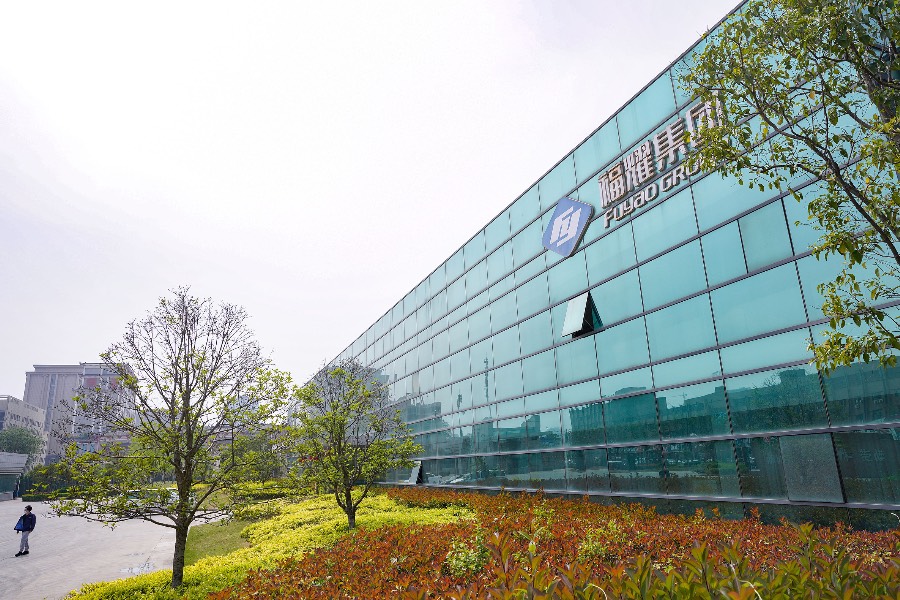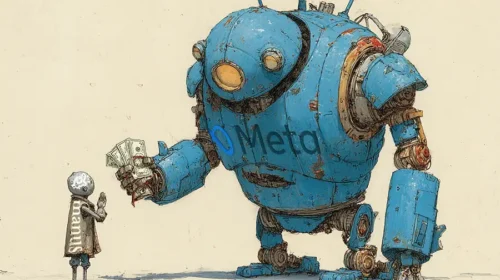Fuyao Glass’ profit surges, unbroken by Trump’s trade war

The automotive glass maker, once heralded as a model of China-U.S. manufacturing cooperation, was unaffected by tariff turmoil in the first quarter
Key Takeaways:
- Fuyao Glass’ net profit jumped 46% to 2.03 billion yuan in the first quarter
- The automotive glass maker relies on locally based production for about 70% of its products sold in the U.S.
By Lee Shih Ta
Founded by renowned entrepreneur Cao Dewang and made famous by the 2019 documentary “American Factory,” Fuyao Glass Industry Group Co. Ltd. (3606.HK; 600660.SH) is a classic story of the “Made in China” phenomenon going global. Starting from a nearly bankrupt factory in a small town in South China’s Fujian province, Cao has built his empire into one of the world’s leading suppliers of glass to the global automotive industry.
But the company, once hailed as a model of China-U.S. manufacturing cooperation for its decision to build a factory in the U.S., became mired in scrutiny from U.S. regulators last year. Meanwhile, despite broader challenges to “China-U.S. cooperation” posed by Donald Trump’s tariff wars, Fuyao still managed to deliver strong first-quarter results earlier this month.
The glass titan reported revenue of 9.91 billion yuan ($1.36 billion) for the quarter, up 12.16% year-on-year, while its profit surged by 46% to 2.03 billion yuan. It attributed the strong profit growth to the combination of revenue expansion and favorable foreign exchange gains. Encouraged by the results, investors bid up Fuyao’s Hong Kong-listed shares by nearly 9% in the two days after the report’s release, recovering most of the stock’s losses incurred during the ongoing tariff war. The stock has been on a roll in 2025, up about 30% year-to-date.
Fuyao’s story began in 1987 when Cao, then 41, started producing windshields for trucks after taking over a township glass factory on the verge of closure in the town of Fuqing.
China’s automotive industry was still in its very early stages at that time, reliant mostly on expensive imported glass. Cao devoted his company to R&D, and finally broke the foreign monopoly on the market, gradually working his way into the supply chain of major domestic automakers including FAW and SAIC Motor.
Fuyao entered the international market in 2001 by scoring a contract to supply its glass to U.S. auto giant General Motors, taking it into the automative mainstream. The company was a pioneer when it invested more than $700 million to set up a factory in Ohio in 2014, setting a record for the largest Chinese investment in U.S. manufacturing at that time.
Today, Fuyao Glass commands over 40% of the global automotive glass market and over 70% in China, with a clientele that includes such world-renowned brands as Mercedes-Benz, BMW, Audi, GM, Toyota and Volkswagen, alongside most of China’s top domestic automakers.
Value-added glass
While automotive glass is a relatively traditional product, the industry is always looking for ways to innovate to create greater value for car makers. As cars become more sophisticated, manufacturers are also demanding more from the glass they use. To meet that demand, Fuyao has been developing high value-added products such as panoramic sunroof glass, dimmable glass and HUD glass. As a case in point, Tesla’s Model Y currently uses panoramic sunroofs supplied by Fuyao.
And as SUVs and new energy vehicles (NEVs) take a greater share of the passenger car market, the average amount of glass per vehicle has also risen from 4 square meters to more than 5, providing a boon to suppliers like Fuyao. In effect, automotive glass has moved from a low-tech commodity to a new fast lane of products integrating structure and function.
Reflecting the growing clout of such high value-added products, Fuyao’s sales of intelligent panoramic sunroof glass, dimmable glass, HUD glass, and lightweight ultra-thin glass, contributed about 5 percentage points more to the company’s total revenue last year compared to 2023. Over the same period, the average selling price for its automotive glass rose by 7.5% to 229.11 yuan per square meter, helping to lift Fuyao’s gross margin to 35.5% in 2024, up 2.8 percentage points from 32.7% in 2022.
The company’s gross margin in the first quarter of 2024 dipped slightly to 35.4%, mainly due to accounting adjustments. But a 22.9% drop in sales expenses and 3.8% decline in administrative costs helped the company to improve its profit significantly.
Despite those generally positive trends, we should also point out that Fuyao’s accounts receivables rose 12.4% year-on-year to 7.29 billion yuan in the first quarter, nearly equal to its entire profit for 2024. The company reassured investors by saying it has efficient collections and other insurance to keep the risk posed by high accounts receivables under control.
Untouched by tariffs
Fuyao’s early decision to localize production and supporting services has served it well in the current environment of global tariff wars. In addition to the U.S., the company has factories in Germany, Russia and Morocco to cater to customers in different parts of the world, becoming an important bulwark against the impact of tariffs on imported products. In 2023 and 2024, overseas revenue accounted for about 45% of the company’s total.
At a briefing after the release of the latest quarterly report, Cao said that 70% of Fuyao’s products supplied to customers in the U.S. are now produced locally, and that the impact of U.S. tariffs on imported products was insignificant for the company. Cao said he became acquainted with the threat of tariffs as early as 2018 during Trump’s first term. At that time, he said “No matter how high the U.S. tariffs, we won’t sell at a loss,” asserting that rolling out more tariffs wouldn’t suppress genuine demand or solve any issues.
Bank of America noted that even though Fuyao largely passed on higher tariff costs to clients, its orders remained stable and weren’t expected to feel any effects over the next two months. Goldman Sachs said it expected Fuyao’s performance to remain steady in the automotive supply chain due to its global production network and market leadership, and reaffirmed its “buy” rating on the company.
Fuyao currently trades at a price-to-earnings (P/E) ratio of about 16.3 times, slightly higher than the 15.9 times of Saint-Gobain (SGO.PA) and well-ahead of the 8.9 times for Xinyi Glass (0868.HK). That reflects the company’s status as the industry leader in automotive glass, including its global production footprint. Those factors are likely to help the company weather the current trade wars. And with its focus on value-added products, and strong demand from a new generation of smart cars taking an increasing share of the market, the company is likely to maintain its growth and keep attracting investors.
To subscribe to Bamboo Works weekly free newsletter, click here




